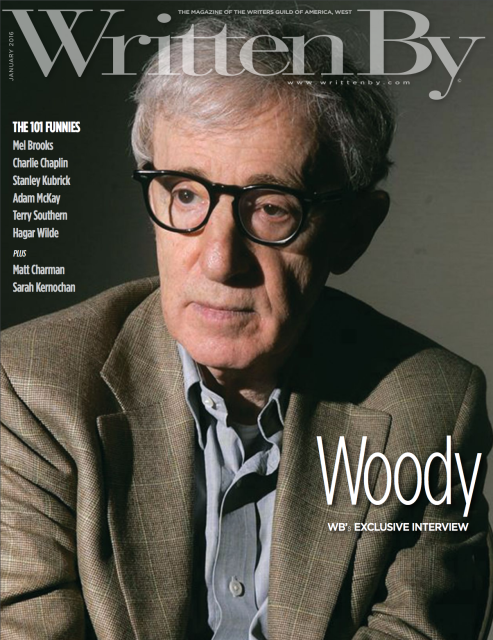
The Writers Guild Of America recently polled their members for the funniest screenplay, a list that was topped by Annie Hall. Seven of Allen’s films made the list, and the WGA sat down with Allen to discuss the list, but instead they talked about the craft of screenwriting, with Allen giving real insight into his process.
The interview comes courtesy of Written By magazine and was conducted by editor Richard Stayton. He also writes a brief introduction about how the interview came about, how he wanted to ask Allen about the film’s that made the list but Allen was (typically) uninterested in revisiting his old films.
Amongst the many revelations, Allen talked about the origins of Midnight In Paris and Blue Jasmine.
Do characters lead you? Is the voice of the character taking you forward? Or is plot the best guide?
It depends on what the story is. Sometimes you get a story that’s completely plotty. Like Midnight in Paris: I thought to myself, ‘This guy’s waiting at a street corner at night and a car pulls up and someone says get in and it takes him back into the 1920s in Paris’.
Well, that’s not a character idea; that’s just kind of a gimmicky idea. And then I have to go from the idea backwards to the characters. Who would that guy be? And then I start to think about it a lot: ‘He’s a guy who loves Paris and he’s a guy who thinks about the past, how romantic the past was’. And I build it from the idea.
Other times, like with Blue Jasmine, my wife told me this story about this housewife who was very rich on the Upper East side, and her husband got caught in fraud and she lost all her money—suddenly I have a character to begin with. She was someone who shopped at all the best stores and had only the best things and suddenly she had to make do with no money at all and everything fell apart. And that story grew from the character because the first thing that triggered me into it was the character. So it depends what initiates you into thinking first.
He also talked about The Purple Rose of Cairo, and the art of writing endings.
Do you know the ending in advance?
I always found it was a mistake not to know the ending in advance because one of the common traps that writers fall into—and I fell into many times when I started—you get a great initial idea that doesn’t go anyplace and then you have no story and you find you’ve written 20 pages or 50 pages or 70 pages and you’re out, you’re gone. All the work you put in doesn’t mean anything. You have nowhere to go with the story. An example of that was Purple Rose of Cairo. I had the idea the guy steps off the screen into Mia Farrow’s life and to me that was a great idea and it was very funny and very romantic. And I think, Great, he steps into her life and she’s now seeing a guy who’s a fictional character who’s existed only on the screen and she’s going places with him and forming a relationship. And I wrote 50 pages and I was out.
Well, okay I have no story. And I put it away and then months later it occurred to me what if the actor playing that character realizes he’s in trouble and comes to town. And you have the fictional Jeff Daniels, the character, and the actor, Jeff Daniels, who played the character. All of a sudden, I had the end of the picture: She had to choose between the live actor and the fictional actor; she chose the live actor, and the live actor betrays her. But I had the end. So it’s very important to have the end when you start, not to go into it unless you know. You cannot have the beginning and you cannot have some of the middle and figure, Well, it will come as I develop. You must have the ending. It’s critical.
Allen also heaped praise on writer Danny Simon, who mentored Allen in various comedy writers rooms when he was starting out.
By the way, I knew your mentor Danny Simon, back in the 1980s. I was a theater critic of all things at the Los Angeles Herald Examiner daily newspaper. He would write to me, and I attended his comedy sketch writing class, and anyway we came to know each other a little bit.
I loved him; he was great to me. And he was the one that said to me, “Don’t be discouraged, it’s always hard to begin a story, that’s always the toughest thing.” And we were only working on sketches at the time, and he would say it’s always tough to get into the sketch but once you get in you’re okay.
You were really young—like 17, right?
I was young, yes, when I met Danny, a teenager. And he was merciless to work with and I loved that about him. He wouldn’t settle. He was obsessive. Every line had to be right, every straight line had to be natural, you couldn’t sneak a straight line in that gave you a great joke. If the straight line in any way at all wasn’t exactly what the person would say under those circumstances, you couldn’t cheat a couple of words so you could make a great joke. He would never accept that. You had to make the joke based on the natural straight line that would be said under those circumstances. And he was very exacting and worked hard. He’d start working at nine o’clock in the morning and work and break for lunch and come back and work all day long. I remember Danny used to always be walking around the room, acting the jokes out, and he often acted them better than the people that would do them.
The interview took pace shortly after Allen wrapped production on his 2016 film. Interestingly, he mentions Harvey Keitel was initially considered for the Michael Caine role in Hannah And Her Sisters.
Read the entire interview, and issue, including a great interview with Mel Brooks (who had three films in the top 12). There is a lot more about Allen’s process and a great read for aspiring screenwriters.
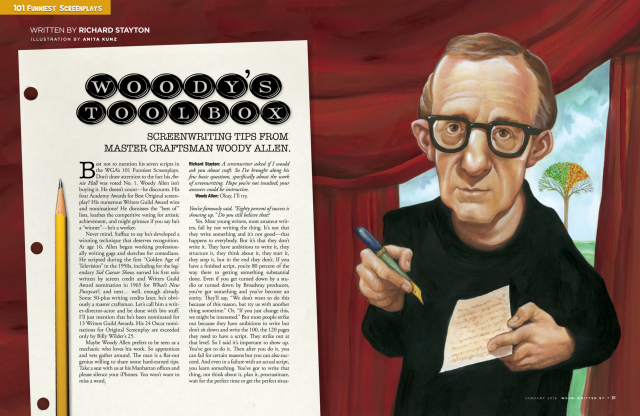

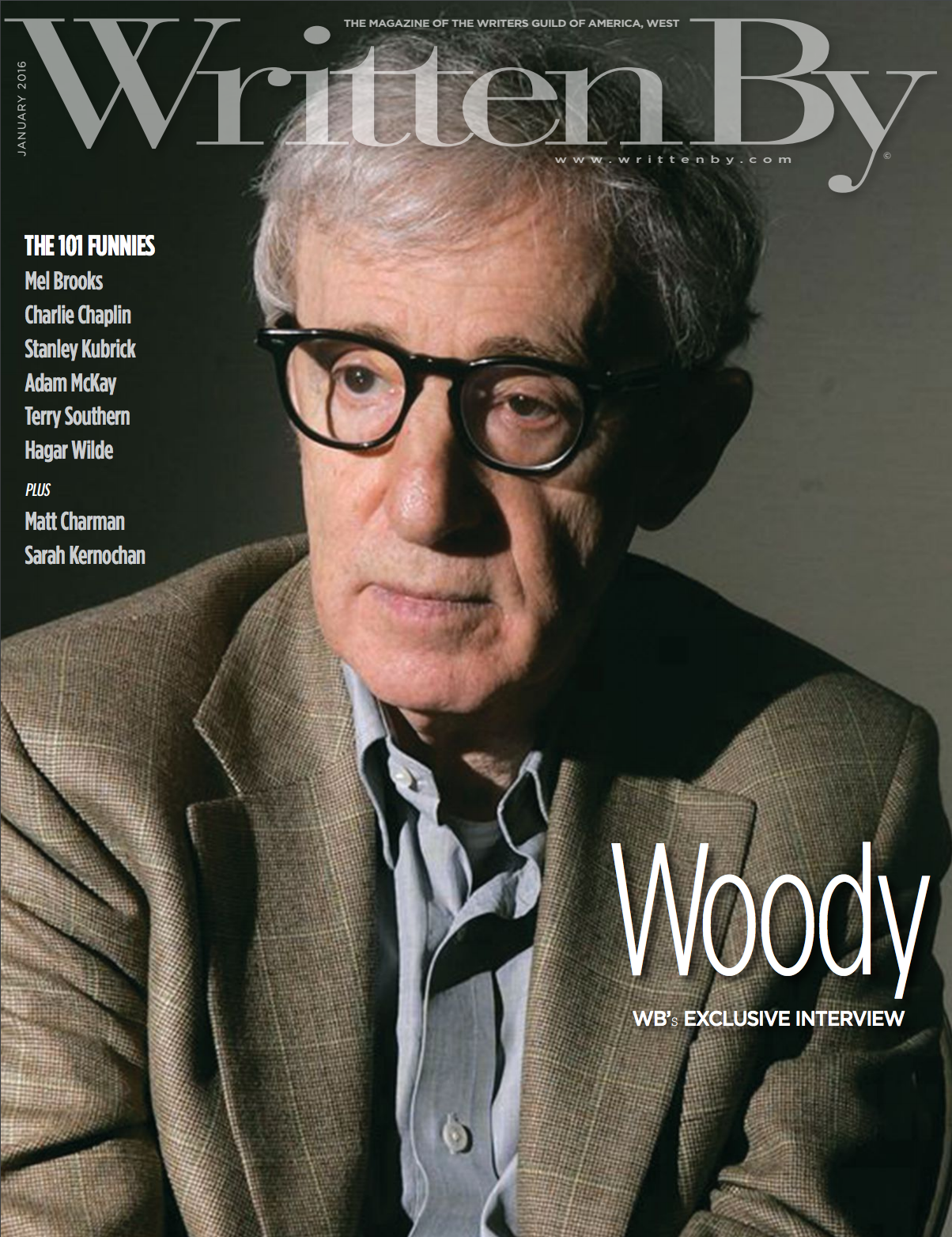
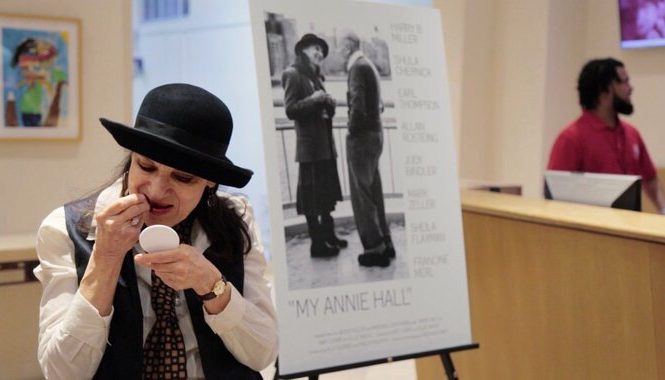
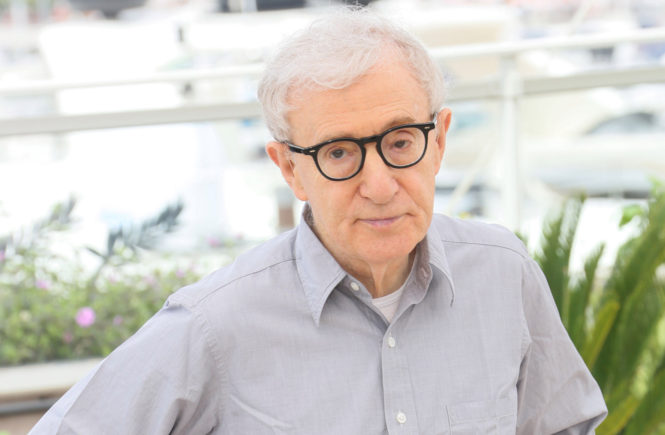
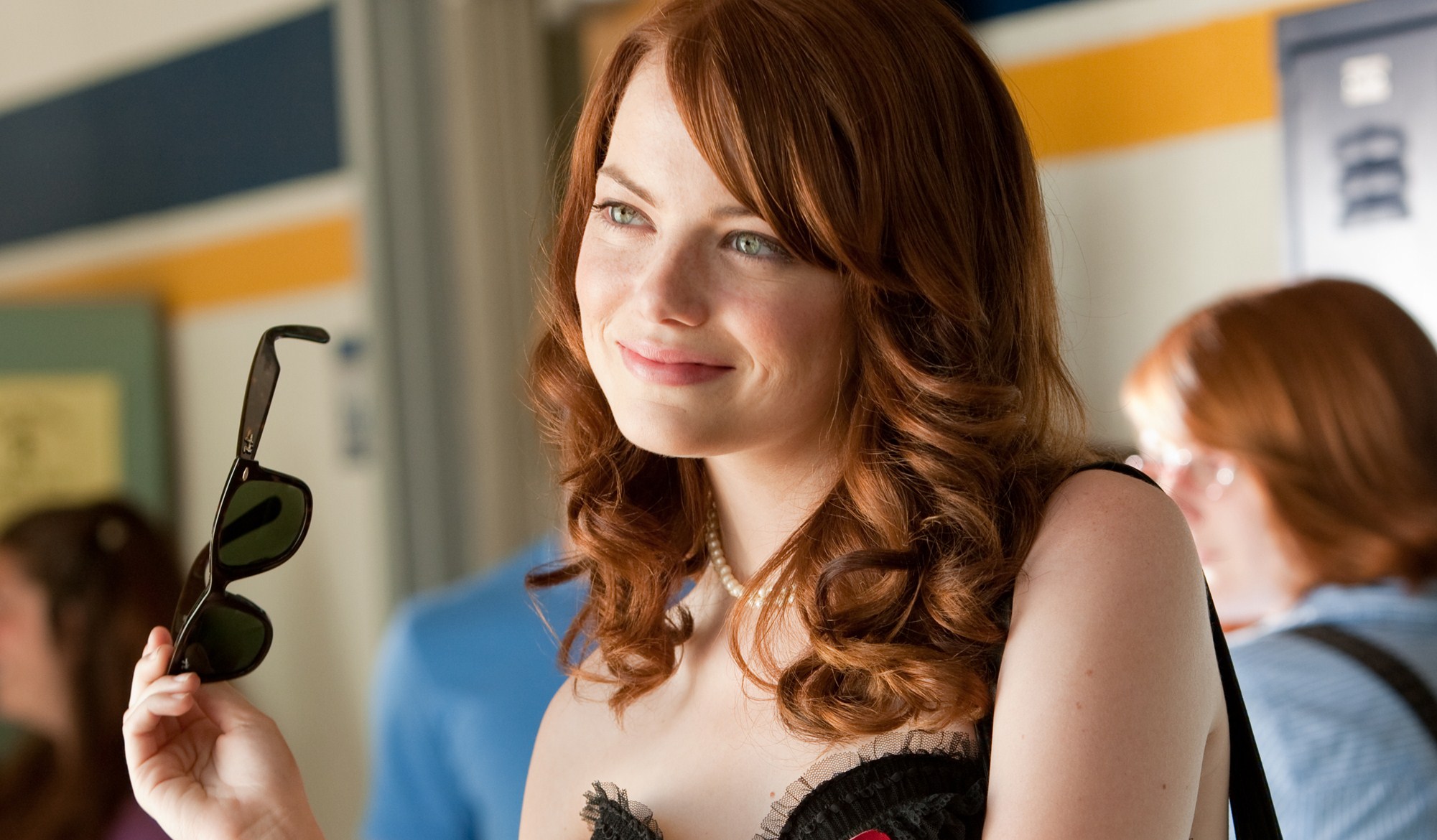
2 Comments
That’s a great picture of Woody on the cover of Written By magazine. Clad in is sport coat, button-down shirt, and trademark Brooks Brothers t-shirt he looks like the quintessential dapper Manhattan writer. The man looks just like Cary Grant in North By Northwest!!!!! He’s ready to take on James Mason, Martin Landau, and that airplane all while capturing the heart of Eva Marie Saint!!!!
GO WOODY!!!!
Super Woody!! We love you always and forever. Genius. Inspiration. Sage. That scene in Manhattan. where he talks on his sofa about why Life is worth living… ” Groucho Marx, Willie Mays, the second movement of the Jupiter symphony, Louis Armstrong’s recording of Potato Head Blues, Swedish movies, Sentimental Education by Flaubert, Marlon Brando, Frank Sinatra,Apples And Pears by Cézanne, the crabs at Sam Wo’s, Tracy’s face.. ” Let’s add Woody Allen!